IN PARTNERSHIP WITH ROLEX
Heroes of change: Meet the innovators using tech to transform and improve lives
From bringing healthcare to the villagers to helping the paralysed walk again, these game-changers, who are supported by the Rolex Perpetual Planet Initiative, have tapped science to make a difference to this place we call home

Telemedicine company Sehat Kahani co-founder and chief executive officer as well as 2019 Rolex Awards Laureate Sara Saeed (centre) oversees an online appointment with nurse Tahira Bibiand (right) at an e-clinic in Pakistan. PHOTO: ROLEX/RETO ALBERTALLI
Call it saving lives from a screen. In Pakistan, 2019 Rolex Awards Laureate Sara Saeed’s medical service Sehat Kahani is bringing critical healthcare to poor and hard-to-reach communities by enabling female doctors to see patients online.
So far, the women have helped people who have been abused, treated children with pneumonia and even diagnosed cancers.
The innovation is making a big difference because half of the people living in the nation’s low-income and rural areas cannot get basic healthcare.
A 2019 Pakistani news report stated that women make up 63 per cent of Pakistan’s 170,000 doctors. Only 23 per cent of them return to work after marriage, as they have families to raise or are not allowed to work outside the home.
Ms Saeed, a medical doctor by training herself, says: “A lot of female doctors don’t work after getting their professional degree. Instead, they stay at home having a family. We’re putting these female doctors back into the workforce within the cultural barriers that exist in Pakistan.”
The 37-year-old Pakistani has built a network of e-clinics where nurses conduct initial examinations before connecting the patient to a female doctor via digital video link. The e-clinics also train women in the community to go door-to-door to offer preventive healthcare.
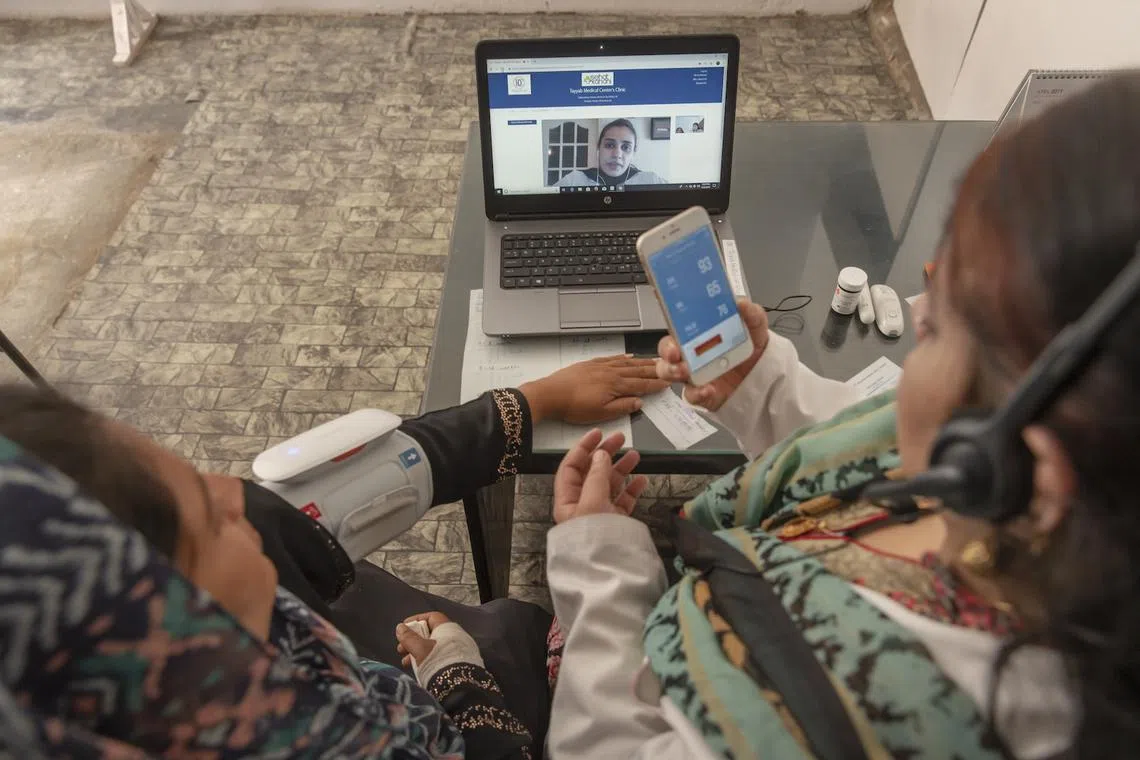
Sehat Kahani has developed an app for patients to get quick medical advice on top of e-clinics where the sick can consult female doctors such as Dr Mahvish Khalid via a video call after a preliminary consultation with a nurse. PHOTO: ROLEX/RETO ALBERTALLI
Additionally, Sehat Kahani has created a mobile app where people can get quick health advice.
The service’s network of doctors has grown to include Pakistani female doctors living in New Zealand and the United States, making it available around the clock in Pakistan. With support from Rolex’s Perpetual Planet Initiative, it has carried out more than 2.5 million consultations for patients across the nation, and has over 1.5 million people on its app and web platform.
Revolutionising modern medicine
Other Rolex Awards Laureates have made strides in healthcare too. Ms Saeed’s fellow 2019 Laureate Gregoire Courtine’s invention, called a “digital bridge”, aims to return movement to those paralysed by spinal cord injuries.
It connects their brain to an epidural electrical stimulation (EES) device implanted on their spine, so that they can control the movement of their legs through thought alone.
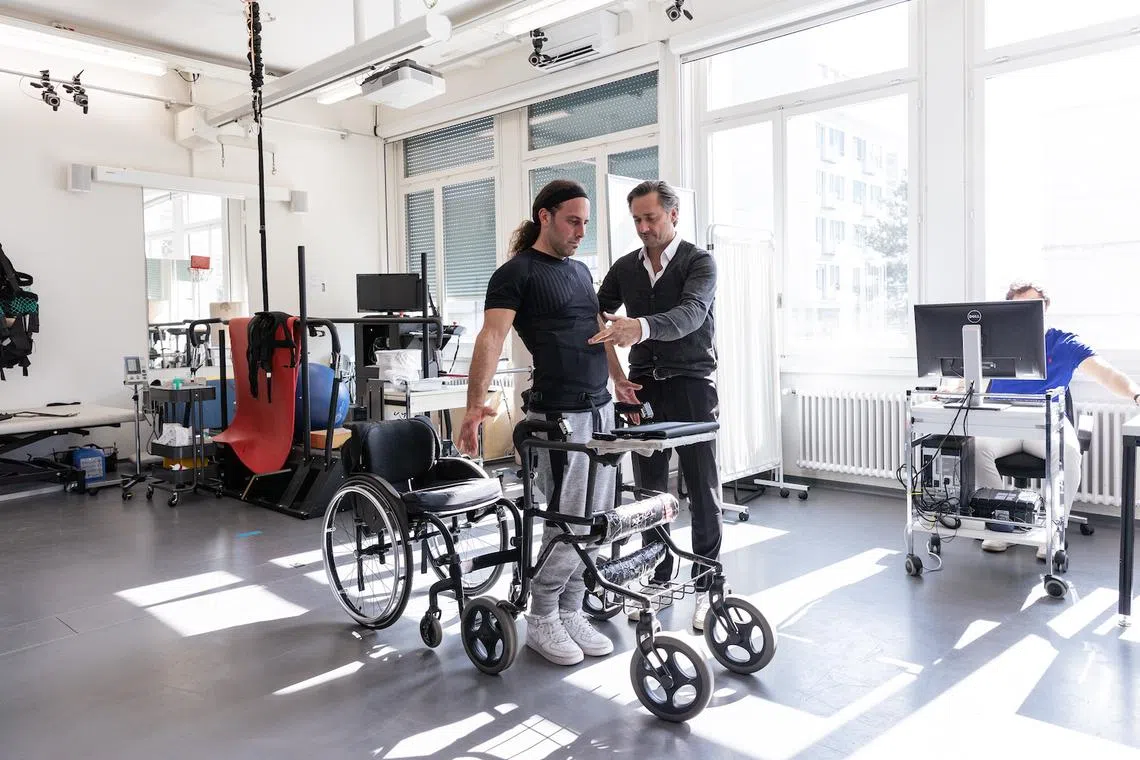
French neuroscientist and 2019 Rolex Awards Laureate Gregoire Courtine (right) implants an epidural electrical stimulation device into the spine to restore mobility to paralysed patients. PHOTO: ROLEX/VICTORIA DAWE
A pilot test in 2023 has already helped a Dutchman paralysed from a cycling accident
The 49-year-old French neuroscientist recalls: “It was one of those rare moments in science where you witness a breakthrough happening before your eyes.” The EES has also been found to be highly effective in treating stroke patients or those who suffer from Parkinson’s disease.
Over in Australia, 2012 Laureate Mark Kendall, 52, developed a nano-patch smaller than a fingernail to deliver vaccines. It has 20,000 tiny needle-like structures, coated with dried vaccine powder, that can pierce the outer skin layer to send the vaccine to immune cells.
With no refrigeration required for the vaccine, anyone can use the patch anywhere to administer immunisation.
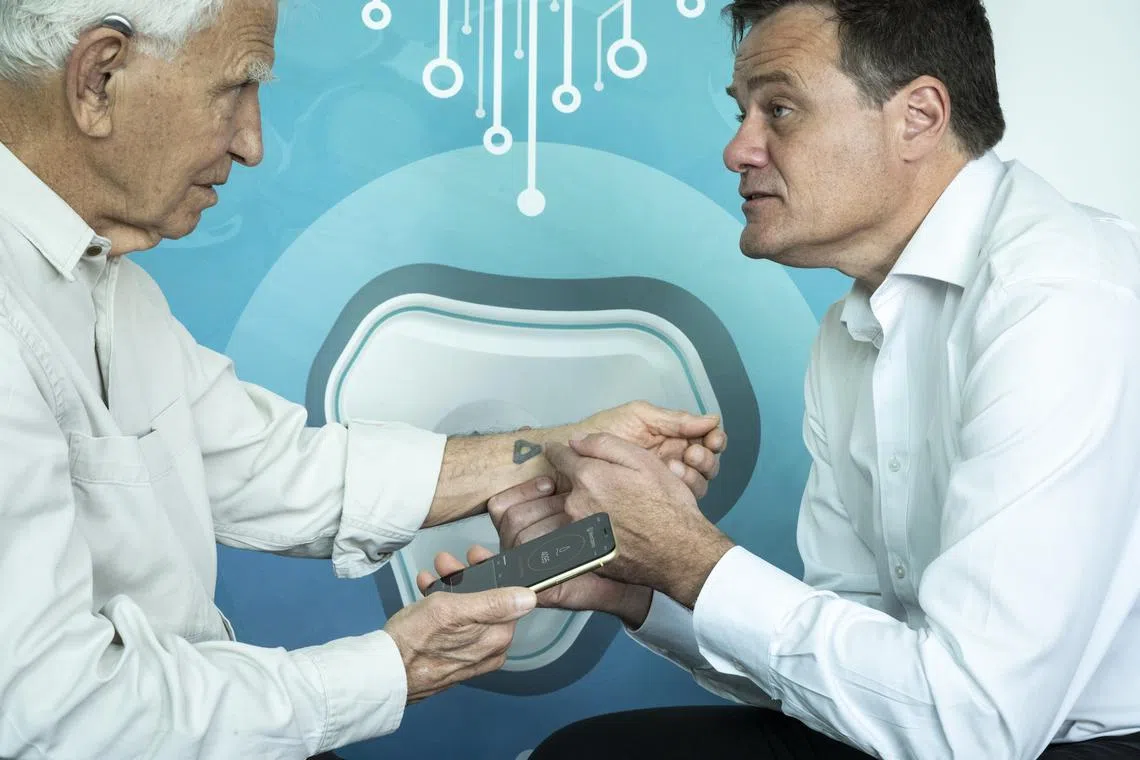
With a microwearable sticker pasted on the skin of a patient, 2012 Rolex Awards Laureate and biomedical engineer Mark Kendall (right) can obtain critical health information and provide personalised medicine for better efficacy. PHOTO: ROLEX/FRANCK GAZZOLA
The Australian biomedical engineer has also used his expertise to design wearable sensors – small plastic triangles that stick to the skin like a plaster – that can detect what is going on in the wearer’s body and send the results to their smartphone, doctor or hospital.
Three different types of sensors are in development, including one that can flag the signs of an impending cardiac event.
All of the Laureates highlighted Rolex’s game-changing support. Mr Courtine says of his Rolex Award: “The fact that a jury of experts believed in our work; it energised us. We felt emboldened to push forward, further into the unknown.”
Mr Kendall adds: “The Rolex Award encouraged me to be even more enterprising, braver in what I undertook. It also brought me in contact with the most amazing people, including experts who look far beyond the horizon at the challenges that lie ahead.”
Putting waste plastics to good use
Beyond healthcare, Rolex Awards Laureates are protecting the planet and improving lives in their own ways.
Inspired by a visit to a plastic processing plant, Chinese-Canadian tech entrepreneur and 2019 Laureate Miranda Wang created recycling technology to turn dirty, unwanted plastics into useful materials.
With help from Rolex’s Perpetual Planet Initiative, she and best friend Jeanny Yao founded Novoloop to commercialise their brainchild.
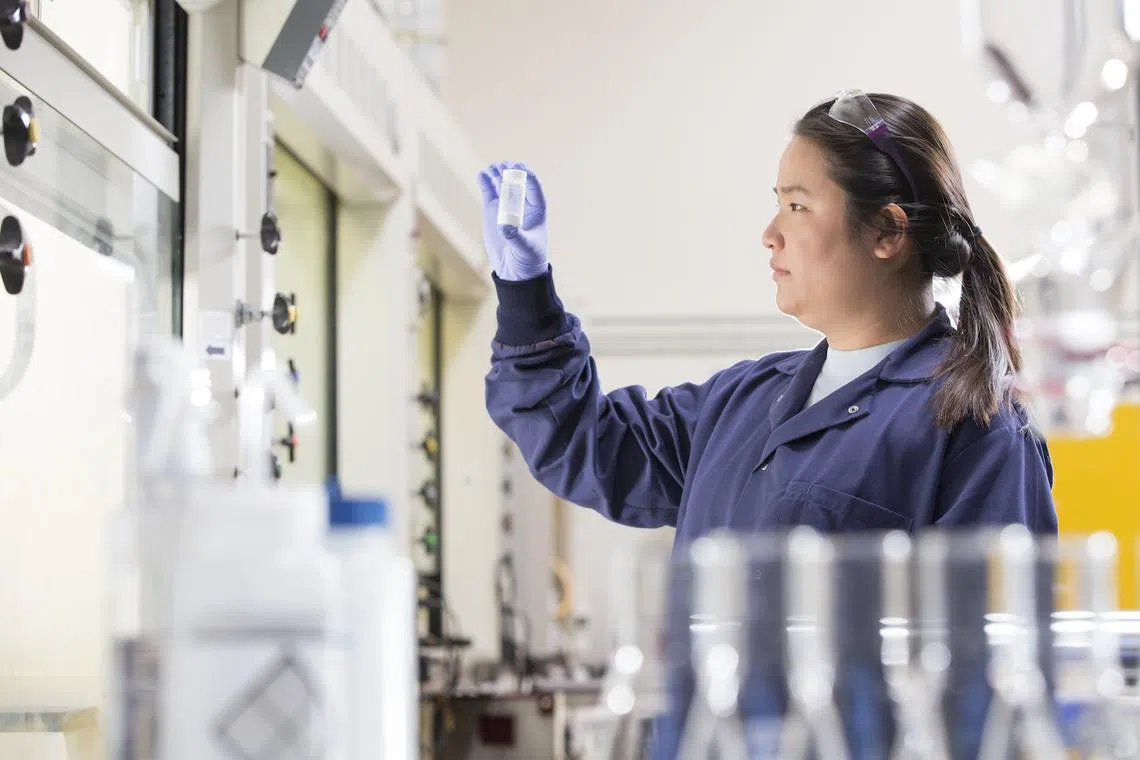
Recycling start-up Novoloop, co-founded by 2019 Rolex Awards Laureate Miranda Wang, is able to turn packaging waste into performance materials that can be used to make industrial and consumer products. PHOTO: ROLEX/BART MICHIELS
The firm built a pilot plant in India last year, and is expanding it to process 70 tonnes of plastic waste annually. It has also commissioned an engineering study for a facility to process 20,000 tonnes of plastic waste yearly.
These will not just recycle the plastics, but also avert carbon dioxide emitted from their burning or dumping, and save resources used to make virgin materials.
“We take waste like dirty plastic bags and single-use packaging materials, and transform them into valuable performance materials made with recycled content with the same properties as virgin materials,” Ms Wang shares.
The recycled products include thermoplastic polyurethane, a versatile and flexible plastic used in shoes, mobile phone cases and many other goods.
The 31-year-old adds: “If we want to continue living on this planet, we must solve the plastic problem within our generation. I’m hopeful about our ability to overcome the plastic pollution problem collectively. Humans have an incredible ability to innovate, to survive at times when it matters. Now is one of those times.”
In other advances with the support of the Rolex Perpetual Planet Initiative, 2023 Laureate Beth Koigi’s firm Majik Water
Social entrepreneur and 2021 Laureate Felix Brooks-Church is tackling malnutrition
Solutions changing millions of lives
The Rolex Perpetual Planet Initiative has also supported projects that are addressing issues as diverse as preventable deaths from road accidents and poor eyecare access in rural places.
After 2010 Laureate Piyush Tewari’s cousin died in a road accident because no bystander stopped to help, he launched the SaveLIFE Foundation (SLF) in India to prevent tragedies like this from happening in the future.
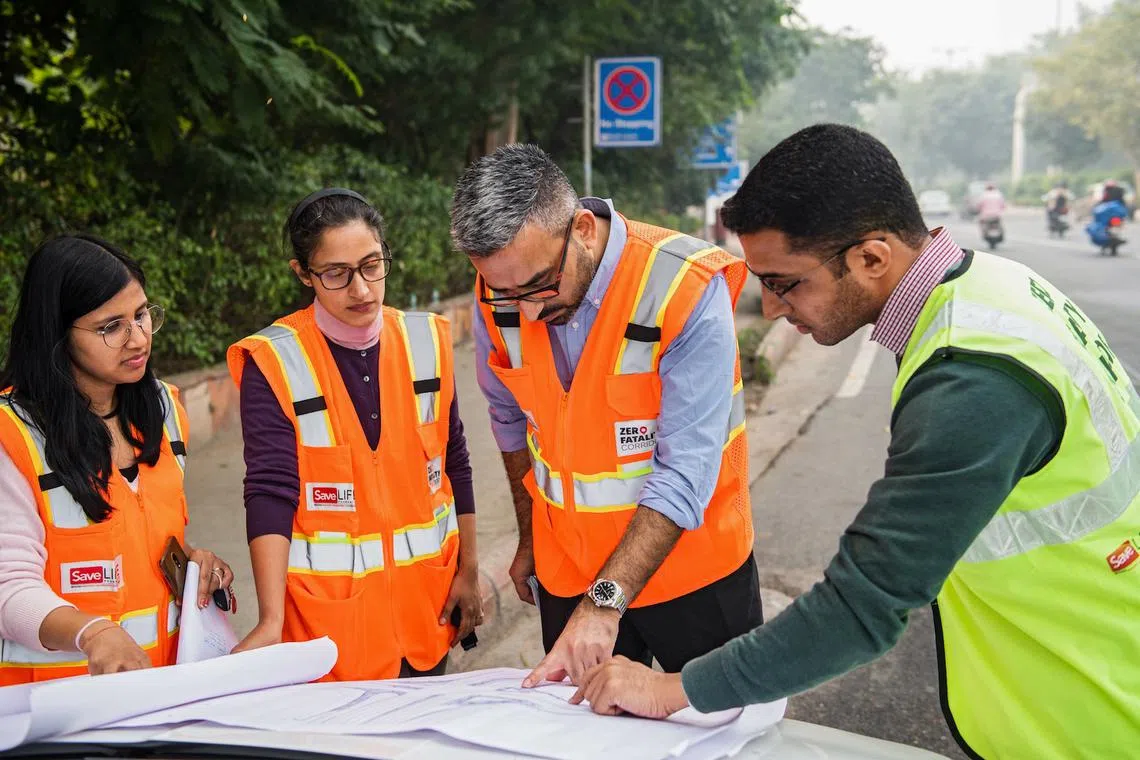
Social entrepreneur Piyush Tewari (second from right), a 2010 Rolex Awards Laureate, launched the SaveLIFE Foundation to find ways to reduce road fatalities in India. PHOTO: ROLEX/TARUN CHOUHAN
Using a data-driven approach, the foundation has repaired critical stretches of roads in India, including the Mumbai-Pune Expressway, where it fixed over 3,500 engineering issues in a 100km span. This has led to a 52 per cent drop in road accident mortality along the expressway.
The improved “zero fatality corridors”, as SLF calls them, have benefited 2,886 people directly and 41.88 million people indirectly.
SLF also provides first-aid training for police officers and volunteers, who have helped rush an estimated 1.82 million people injured in roadside accidents to hospitals.
Mr Tewari, 44, says that winning the Rolex Award and earning its accompanying support was the seed that enabled SLF to grow. The social entrepreneur says: “The Rolex Award was the first ever validation of the fact that we were on the right path, that what I was trying to do had the potential to save many lives and it was recognised by an institution that values excellence so much.”
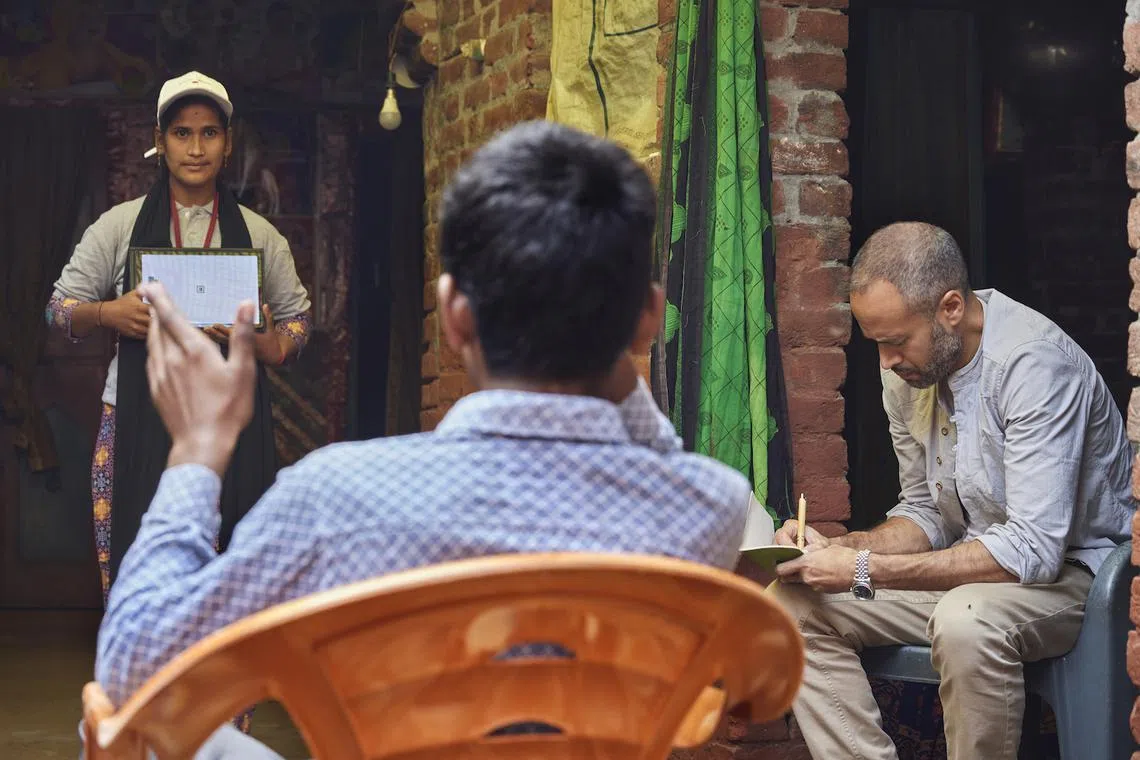
The Peek Vision team, headed by 2016 Rolex Awards Laureate and ophthalmologist Andrew Bastawrous (right), carries out a sight test for an Indian boy using the Peek Acuity app. PHOTO: ROLEX/SEBASTIEN AGNETTI
Another project that has flourished with assistance from Rolex’s Perpetual Planet Initiative is 2016 Laureate and ophthalmologist Andrew Bastawrous’s Peek Acuity app.
It allows non-experts to check others’ eyesight with just a mobile phone, and refers those who need help to relevant health facilities. This has brought eyecare to rural areas in 12 countries in Asia and Africa so far.
The Briton, who is also a professor in global eye health at the London School of Hygiene & Tropical Medicine, shares: “We’re deliberately choosing difficult places to work, but beyond that, we’re choosing populations who are least able to access or pay for eyecare services. It’s about leaving no one behind.”
The app by the 45-year-old has screened more than 10 million people to date, and continues to screen over 500,000 people each month.
A perpetual pillar of support
These initiatives are only a snapshot of how Rolex’s partners, Testimonees and Rolex Awards Laureates are helping to safeguard the environment and improve human well-being.
For nearly a century, Rolex has been supporting such innovators, pioneers and explorers to push the boundaries of human endeavour.
With climate change and other problems threatening the world’s natural ecosystems, Rolex has shifted from championing exploration for the sake of discovery to protecting the planet. It is committing for the long term to empower individuals and organisations that are using science to illuminate and address today’s environmental challenges.
It reinforced this engagement in 2019 with its Perpetual Planet Initiative, which initially focused on the Rolex Awards and longstanding partnerships with the National Geographic Society and Mission Blue. Legendary oceanographer Sylvia Earle, who is a Rolex Testimonee, founded and leads the latter organisation to explore and protect oceans.
The Initiative now has a diverse and growing portfolio of over 30 partnerships, concentrating on ocean conservation, wilderness protection and the living world’s preservation, including with Rewilding Argentina and Rewilding Chile, which protect landscapes in South Africa, Under the Pole expeditions for underwater exploration, and Rolex Awards
Rolex also advances organisations and initiatives that foster the next generation of explorers, scientists and conservationists through scholarships and grants. These span the Our World-Underwater Scholarship Society and The Rolex Explorers Club Grants.
With these and myriad other support, Rolex is working with individuals and organisations to use science to create solutions to today’s problems and forge the building blocks for a better tomorrow.
We The Earth Rolex and its Perpetual Planet Initiative


